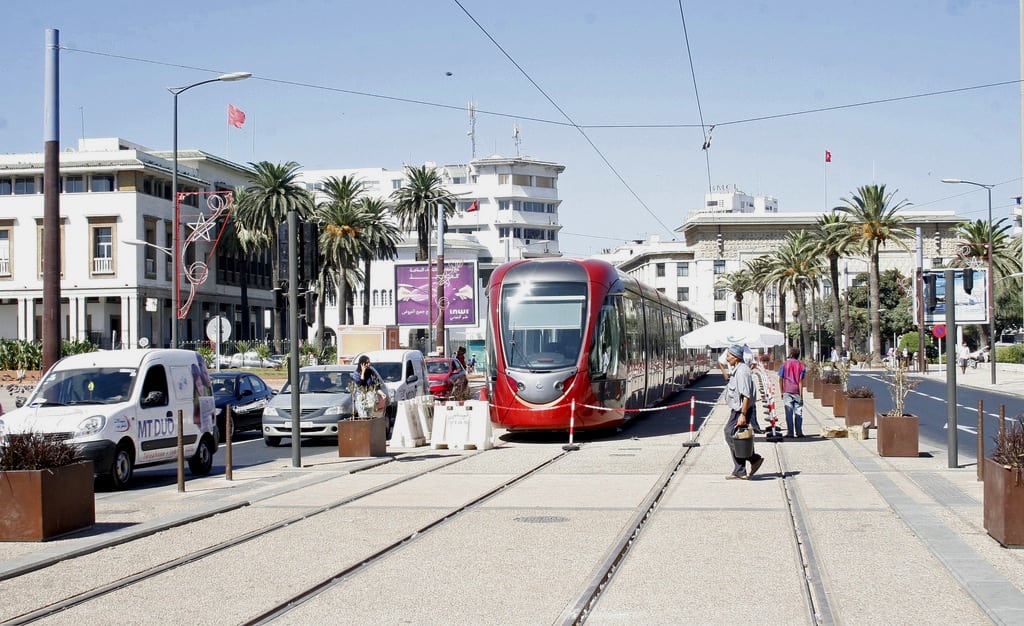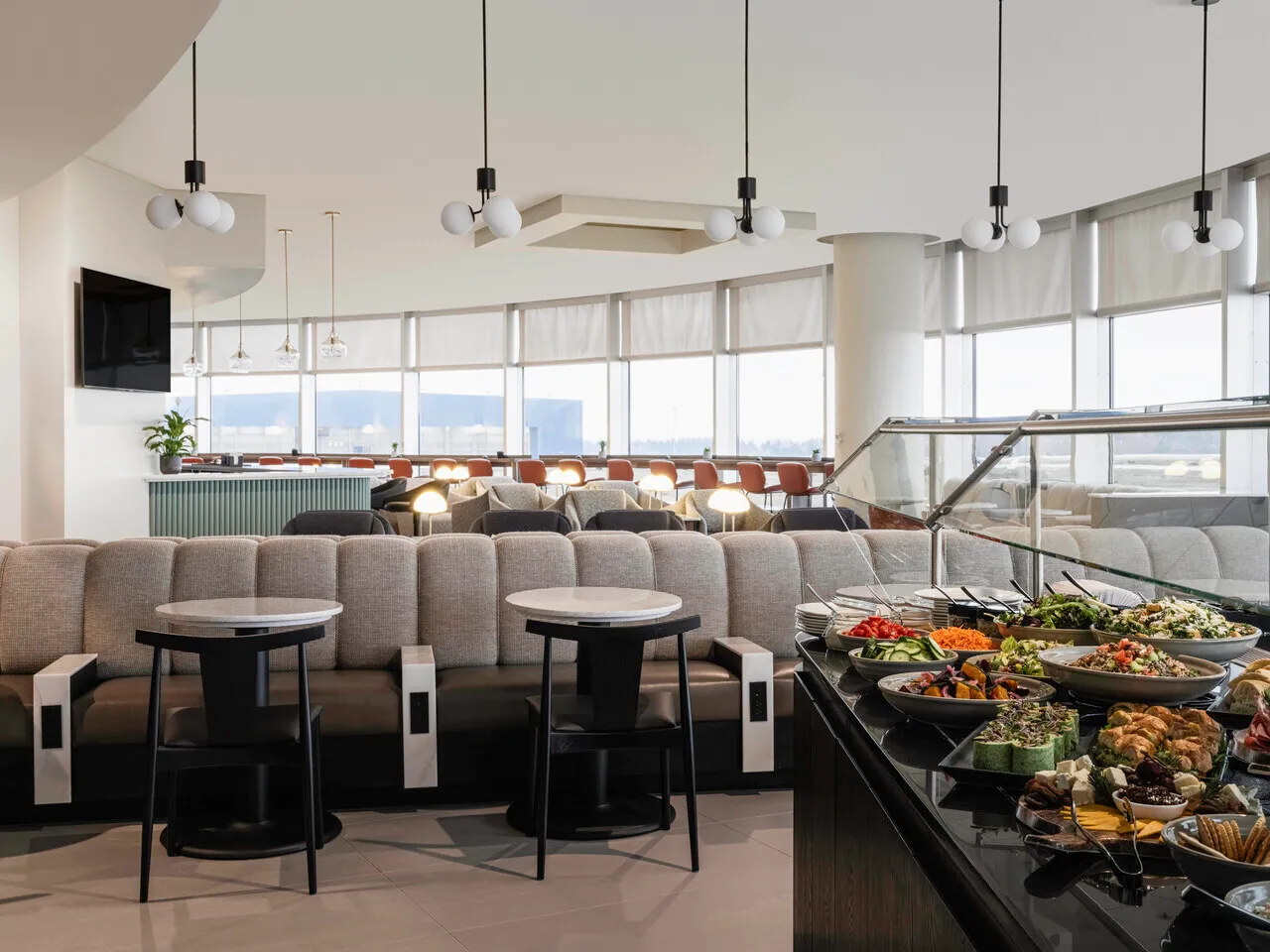Casablanca's new coastal tram line relieves stress for travelers and residents

Skift Take
The sprawling ocean-side city of Casablanca, Morocco's commercial capital, became more elegant recently when it got a most modern tramway.
The $745 million tramway was opened by King Mohammed VI in the presence of hundreds of thousands of joyful residents.
The project enhances the city's landscapes and ambience. In addition, it reduces traffic jams, and air and sound pollution.
Road congestions are a regular feature of Morocco's sixth biggest city in the entire continent of Africa with 5 million residents.
Operating on Alstom Citadis wagons, the first line of Casablanca tramway crosses the city from the east to the west with a 31 km itinerary and 48 stations. Each 65-meter long tramway is composed of coupled wagons. It has a capacity of transporting 606 travelers with 105 seating places. With a pool of 37 coupled tramways, Casablanca Tramway is estimated to transport 250,000 travelers per day by 2015.
The tramway has been constructed to connect the different city districts and open up its suburbs. Line 1 will provide access to the universities, the Casa Voyageurs ONCF station, the historic center and business districts.
Casablanca Tramway is a real engine to the city creating new city dynamic and servicing business areas, public services, trades, tourism and entertainment centers through a means of transportation that is fast, efficient and environment-friendly. The project brings real solutions to the lack of public transportation services as it operates in the suburbs and the city center.
"The main objective is to upgrade Casablanca to the level of worldwide metropolis, endowed with a modern identity, proud of its heritage and strengthening social cohesion," says Khalid Rahmani, managing director of CasaTram.
The social aspect is a dominant feature in the project.
The tramway is, in fact, a unifying component of the city connecting various neighborhoods from Sidi Moumen suburb to Ain Diab coast, the city center, and main educational facilities, business areas and train stations.
The project has been established with great attention to Casablanca vegetal heritage. More than 4,000 trees have been planted along a 31 km green corridor.
The opening ceremony was a festive celebration for Casablanca inhabitants. In addition to King Mohammed VI, the event was held in the presence of Moroccan Prime Minister Abdelilah Benkirane and French Prime Minister Jean-Marc Ayrault, Mohamed Bousaid, Wali for the Casablanca region, Mohamed Sajid, mayor of Casablanca, Youssef Draiss, Casa Transports' managing director, Pierre Mongin, RATP chairman and chief executive, and Patrick Kron, Alstom chairman and chief executive.
Youssef Draiss, general director of Casablanca Transport, told Arab News that the cost of the project is 5.9 billion Moroccan dirhams ($ 745 million).
"The tramway runs on electricity and thus diminishes the air pollution. It will also decrease traffic jams and sound pollution," he added.
In 2009, Casa Transports -- the public sector company tasked with public transport in Casablanca -- awarded a contract to Alstom to provide 74 Citadis tramway trains. Two further contracts were signed with Alstom in 2010 to install signaling systems and supply electricity for the line.
"We are leaders in the tramway market, with already 1,600 Citadis tram sets sold to over 40 cities worldwide," Loic Dubois, tramway strategy manager at Alstom Transport told Arab News on the sidelines of the opening ceremony.
"The Citadis versions designed for Casablanca feature twelve side doors and an integral lowered floor to ensure easy access and more fluid passenger movement," Dubois added.
"The Citadis design has been customized in line with the city's architectural style and features a rounded, regular form from end to end. Its metallic red livery contrasts with the brightness of the city. Inside, the patterns and tones are inspired by Moroccan style. Air conditioning, large tinted windows and information displays in Arabic and French have all been designed to ensure optimal traveling conditions," Dubois added.
Citadis is designed by renowned designer Xavier Allard who currently works with Alstom as VP design and styling.
Traffic will be managed at the Central Command Center located at the operations and maintenance center (CEM), one of the largest in the world (7 hectares in surface area), in Sidi Moumen at the eastern end of the line. With the launch of the project, it will operate with 37 tramways 65 meters long, but has provision for expanding its capacity to 50 tramways.
Through the Casa Tram consortium, RATP Dev will be responsible for operating and maintaining the first tramway line for a period of 5 years.
Alstom, which has strong presence and offices in the Gulf and elsewhere in the Middle East, is one of the world leaders in electricity generation and transmission infrastructure and in rail transport. It builds the fastest trains in the world and automatic metros boasting the highest capacity.
The construction of Casablanca Tramway has generated over 3,000 direct and indirect jobs.
The operations employ 600 people, of whom 400 are dedicated to all security aspects.
(c)2012 the Arab News (Jeddah, Saudi Arabia). Distributed by MCT Information Services. ![]()




